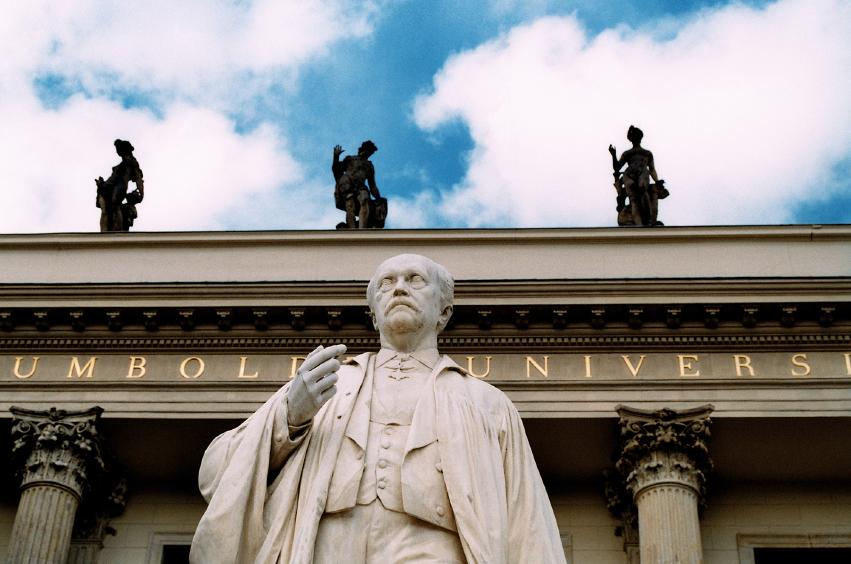The top 20 universities in Germany include LMU Munich, Technical University of Munich, and Heidelberg University. Other notable institutions are Humboldt University of Berlin and RWTH Aachen University.
Germany, renowned for its robust education system and historic academic excellence, boasts some of the world’s most prestigious universities. These institutions attract a diverse student body eager to engage in cutting-edge research and innovation. Germany’s top universities offer a range of programs in science, engineering, humanities, and social sciences, making them ideal for students with various academic interests.
With a strong emphasis on research and development, these universities are at the forefront of technological and scientific advancements. Many of them also have partnerships with leading companies, providing students with valuable industry exposure and career opportunities. The education quality, combined with low or no tuition fees, makes Germany a prime destination for international students seeking a world-class education.
Introduction To Germany’s Higher Education
Welcome to the heart of innovation and excellence, where Germany’s higher education system stands tall on the global stage. With a rich history and a modern approach to learning, Germany offers a unique educational experience. Students from all corners of the world flock to German universities, attracted by their strong reputation and the promise of a bright future.
Global Recognition And Prestige
German universities are celebrated worldwide for their academic rigor. They consistently rank high in global university rankings. This is a testament to their quality of education, research opportunities, and innovative teaching methods. International students gain degrees that are recognized and respected around the globe.
Unique Features Of German Universities
Germany’s higher education system is distinct in several ways. One of the most notable features is the no tuition fee policy at public universities for both domestic and international students. This makes higher education accessible to a wider audience. Additionally, universities in Germany are well-connected with industries, providing hands-on learning experiences and internship opportunities that are crucial for real-world success.
- High emphasis on research and development
- State-of-the-art facilities and resources
- Interdisciplinary courses and study programs
- Opportunities for student exchanges and international collaboration
Credit: www.quora.com
Criteria For Ranking: What Makes A University Elite?
When choosing a top university, certain factors set the elite apart. Understanding these criteria can guide students and researchers to make informed decisions. Let’s explore what makes a German university rank among the best.
Academic Reputation
Academic reputation reflects a university’s standing in the global education landscape. It’s measured by the achievements of its faculty and the quality of its teaching.
- Number of award-winning professors
- Highly cited papers
- Global academic surveys
Research Impact And Facilities
Research impact shows how a university contributes to knowledge. World-class facilities support groundbreaking research.
| Aspect | Description |
|---|---|
| Publication Volume | Number of research papers published |
| Facilities | Modern labs and equipment |
| Grants and Funding | Financial support for research |
Student Satisfaction And Diversity
Student satisfaction is vital. It includes campus life, resources, and support services. Diversity enriches the academic experience.
- Surveys on student happiness
- International student ratio
- Support for students
Exploring The Top 5 Universities
Germany stands as a beacon of higher education, with its universities renowned for innovation and academic excellence. The top 5 German universities are not just educational institutions; they are hubs of research, culture, and future-thinking. Let’s dive into the world of these prestigious universities and uncover what makes them truly outstanding.
Notable Achievements And Programs
- Ludwig Maximilian University of Munich (LMU): Known for Nobel Laureates in Physics and Medicine.
- Technical University of Munich (TUM): Pioneering in Engineering and Technology programs.
- Heidelberg University: Excellence in Life Sciences and Humanities research.
- Humboldt University of Berlin: Recognized for its interdisciplinary approach in Arts and Sciences.
- University of Freiburg: Leader in Environmental Studies and Sustainability.
Key Faculty And Alumni
| University | Notable Faculty | Notable Alumni |
|---|---|---|
| LMU Munich | Werner Heisenberg, Nobel Laureate | Max Planck, Founder of Quantum Theory |
| TUM | Carl von Linde, Refrigeration Pioneer | Gerhard Ertl, Nobel Laureate in Chemistry |
| Heidelberg University | Hannah Arendt, Political Theorist | Robert Bunsen, Chemist |
| Humboldt University of Berlin | Albert Einstein, Theoretical Physicist | Angela Merkel, Former Chancellor of Germany |
| University of Freiburg | Martin Heidegger, Philosopher | Joseph Goebbels, Historical Figure |
Universities 6-10: Continuing Excellence
Universities 6-10: Continuing Excellence showcases Germany’s commitment to higher education. These institutions balance tradition with innovation. Students find diverse programs and vibrant campus environments. Let’s explore the unique offerings from these top-notch universities.
Specialized Courses And Research Opportunities
Germany’s academic landscape thrives on specialization and research. Universities 6-10 are no exception. They offer cutting-edge courses in various fields.
- Engineering: Advanced robotics and automotive engineering programs stand out.
- Medicine: Groundbreaking medical research and state-of-the-art facilities.
- Environmental Sciences: Focus on sustainable development and renewable energy.
- Humanities: Blend of traditional disciplines with modern societal studies.
Partnerships with global research institutes enhance these opportunities. Students engage in projects that push academic boundaries.
Campus Life And Student Activities
Life on campus for students at these universities is dynamic and engaging. A variety of clubs and organizations cater to all interests.
| University | Clubs and Societies | Sports Facilities | Cultural Events |
|---|---|---|---|
| University 6 | Over 50 student-led groups | Modern gym and sports arenas | Annual arts festival |
| University 7 | Technology and innovation hubs | Olympic-sized swimming pool | International film series |
| University 8 | Eco-sustainability collectives | Rock climbing and hiking clubs | Monthly music concerts |
| University 9 | Entrepreneurial incubator programs | State-of-the-art fitness center | Theater and comedy nights |
| University 10 | Language and culture exchanges | Competitive sports teams | Global cuisine weeks |
These activities complement academic life. They foster a sense of community and personal growth. Students leave well-rounded and prepared for global challenges.
Universities 11-15: Hidden Gems

Credit: www.timeshighereducation.com
Universities 16-20: Emerging Leaders
Germany’s educational landscape is vast and varied. Universities 16-20 represent the emerging leaders in this realm. They are climbing the ladder of global academia. These institutions are gaining recognition for their dynamic growth and innovation. Let’s dive into what makes these universities stand out.
Growth In Global Rankings
The rise of these universities in global rankings is impressive. They are catching up with the giants. This growth reflects their commitment to excellence. Students from around the world are taking notice.
- Quality of education is improving.
- Research output is increasing.
- International collaborations are expanding.
Investment In Technology And Infrastructure
A significant surge in investment marks these universities. They focus on technology and infrastructure. This approach ensures students access to state-of-the-art facilities. It fosters a conducive environment for learning and innovation.
| University | Investment Highlights |
|---|---|
| University 16 | New tech labs, high-speed internet, green campuses |
| University 17 | Renovated libraries, advanced research equipment |
| University 18 | Cutting-edge engineering facilities, industry partnerships |
| University 19 | Modernized dorms, interactive learning tools |
| University 20 | Expanded IT services, collaborative workspaces |
Studying In Germany: Practical Considerations
Choosing Germany for higher education is a smart decision. This section dives into important factors like costs and visa requirements. These details help plan your education and stay in Germany.
Cost Of Education And Living
Germany offers a unique advantage as many universities do not charge tuition fees. This applies mostly to public universities for undergraduate courses. Yet, a small semester contribution fee covers administration, student support, and transit passes.
| Expense | Cost (Euro) |
|---|---|
| Semester Fee | 250-500 |
| Rent | 300-600 |
| Food | 150-250 |
| Health Insurance | 80-100 |
| Total Monthly Cost | 780-1450 |
Lifestyle choices and city selection can affect living costs. Cities like Munich or Hamburg are more expensive than smaller towns.
Visa Requirements And Work Opportunities
Non-EU students must obtain a student visa. A blocked account showing sufficient funds is necessary to secure this visa. The current requirement is around 10,332 Euros for one year.
- Apply early for your visa
- Prepare all needed documents
- Show proof of financial resources
Students can work part-time. They are allowed to work 120 full days or 240 half days per year. This helps manage living expenses and gain work experience.
- Check job options at your university
- Learn basic German to increase job opportunities
- Understand your work rights and visa limits
German universities often provide career services to help students find jobs related to their field of study.
Understanding these practical considerations ensures a smooth transition to studying in Germany. Prepare well to make the most of your education journey.
Future Of German Higher Education
The Future of German Higher Education is shaping up to be exciting and innovative. As Germany’s top universities continue evolving, they focus on embracing global trends and technological advancements. This ensures they remain at the forefront of providing excellent education.
Trends And Predictions
The landscape of German higher education is witnessing significant transformations:
- Increased digitalization of courses and administrative processes.
- Growth in international collaborations to enhance research and learning opportunities.
- Emphasis on sustainable practices within campus operations.
- Expansion of interdisciplinary studies, blending science, technology, arts, and humanities.
Government And Institutional Initiatives
Both government and educational institutions are stepping up to further elevate the quality of higher education:
- Introduction of policies supporting international students, making Germany more attractive as a study destination.
- Investment in cutting-edge research facilities to foster innovation.
- Implementation of green policies to promote environmental sustainability on campuses.

Credit: www.fau.eu
Frequently Asked Questions
What Is The Top 1 University In Germany?
The top university in Germany is Ludwig Maximilian University of Munich, known for its research and academic excellence.
What Is The Harvard Of Germany?
The “Harvard of Germany” often refers to the University of Heidelberg due to its prestigious academic reputation.
How Many Of The 1000 Top Ranked Universities Worldwide Are Found In Germany?
Germany boasts 45 universities among the top 1000 global rankings, showcasing its strong academic presence and educational excellence.
Which University In Germany Has 100 Acceptance Rate?
No university in Germany guarantees a 100% acceptance rate. Admission depends on the program and applicant qualifications.
Conclusion
Embarking on your academic journey in Germany offers a wealth of options. This list of top universities is a beacon for those seeking excellence. It’s time to consider which institution aligns with your aspirations. With diverse programs and vibrant campus life, your ideal university awaits.
Start your adventure in the heart of Europe – your future is calling.
 Sotto TV Sotto TV বাংলাদেশের একটি জনপ্রিয় ওয়েব পোর্টাল। যেখানে টেকনোলজি,বিভিন্ন ধরনের টিপস,ক্যারিয়ার টিপস,ব্যাংকিং ইনফর্মেশন, অনলাইনে আয় করার পদ্ধতি এবং সাম্প্রতিক সময়ে ঘটে যাওয়া সকল আপডেট তথ্য প্রকাশ করা হয়।
Sotto TV Sotto TV বাংলাদেশের একটি জনপ্রিয় ওয়েব পোর্টাল। যেখানে টেকনোলজি,বিভিন্ন ধরনের টিপস,ক্যারিয়ার টিপস,ব্যাংকিং ইনফর্মেশন, অনলাইনে আয় করার পদ্ধতি এবং সাম্প্রতিক সময়ে ঘটে যাওয়া সকল আপডেট তথ্য প্রকাশ করা হয়।



